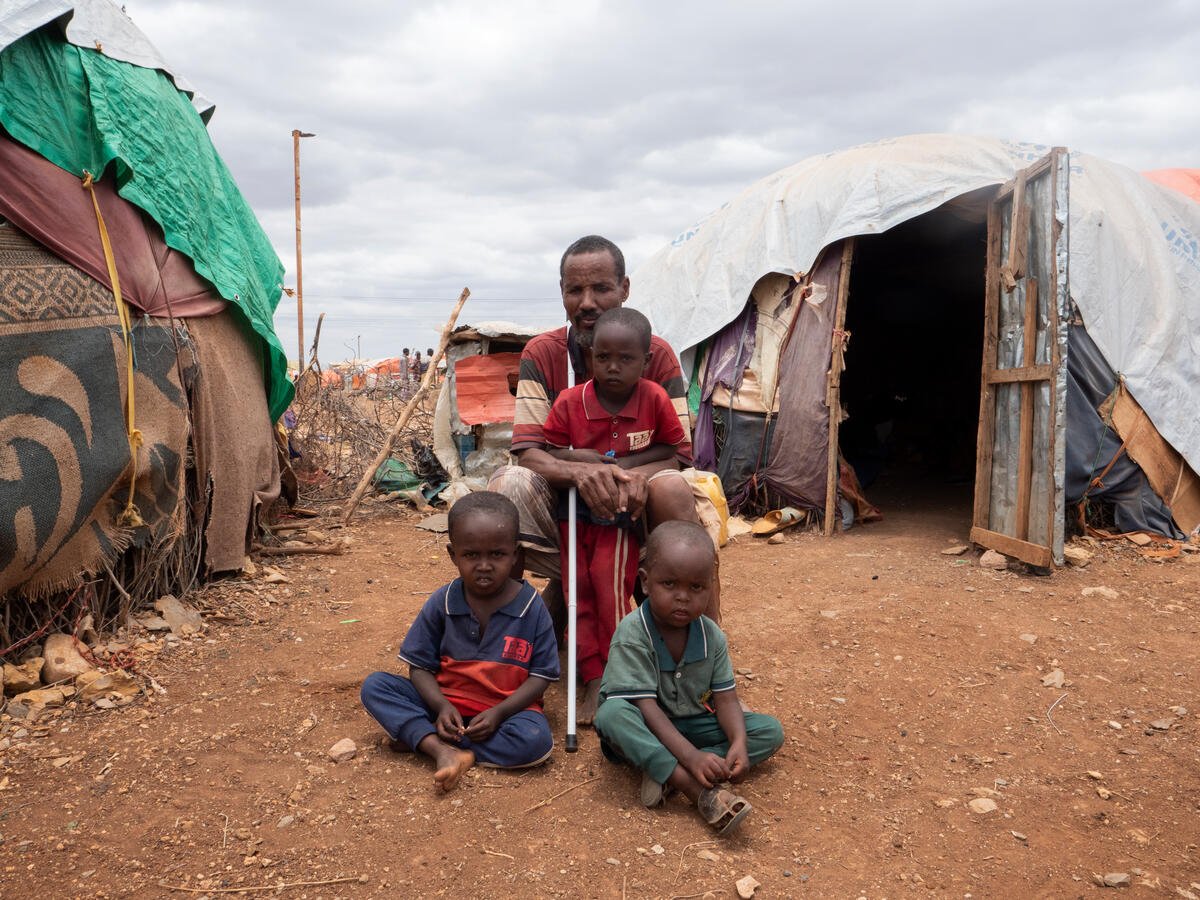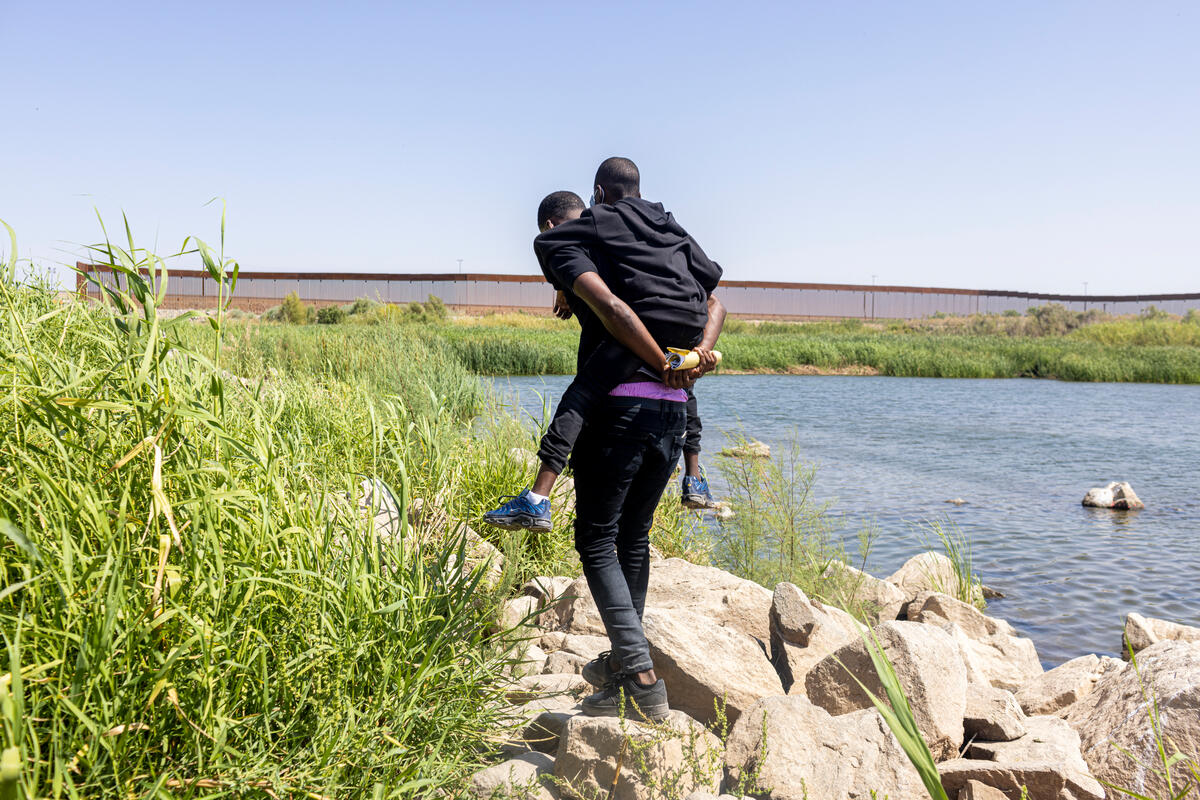UN rights experts urge more protection for LGBTI refugees
UN rights experts urge more protection for LGBTI refugees
States and other actors involved in refugee protection must recognize the unique vulnerability and specific needs of lesbian, gay, bisexual, trans, intersex and gender-diverse (LGBTI) asylum-seekers and refugees, the UN Independent Expert on protection against violence and discrimination based on sexual orientation and gender identity, Victor Madrigal-Borloz, and UNHCR’s Assistant High Commissioner for Protection, Volker Türk, said today.
“For many LGBTI people, the trauma and persecution start well before their actual flight to safety,” the Independent Expert said. “Persecution often manifests through laws that criminalise sexual orientation, gender identity or expression or that are discriminatory.”
He said LGBTI people are also exposed to disproportionate levels of arbitrary detention, police abuse, violence and extrajudicial killings by both State and non-State actors, as well as abuse in medical settings, including forced sterilisations and so-called ‘conversion therapies’. Their right to freedom of expression, assembly and association is often also unduly restricted.
“Unfortunately the journey to safety can prove particularly treacherous for many LGBTI refugees who continue to face prejudice and violence in countries of transit and host countries,” Türk said.
The first element of protection is access to asylum, the UN experts said. It is crucial that States ensure that a well-founded fear of persecution on the basis of sexual orientation, gender identity, gender expression, and/or sex characteristics is accepted as a ground for the recognition of refugee status. Presently, some 37 States grant asylum to individuals on such grounds, but the majority of States adjudicating asylum unjustifiably fail to do so.
States should take measures to address the violations faced by LGBTI refugees and asylum-seekers, including through incorporating LGBTI-sensitive measures into their asylum procedures.
“Officials involved in the process of determination of refugee status and in managing reception conditions should receive sensitive and culturally appropriate training on sexual orientation, gender identity and sex characteristics,” said Türk. This should include individual assessments sensitive of the protection needs of LGBTI persons and using interviewing and assessing techniques that respect the dignity and privacy of persons seeking asylum and that are determined in an objective and sensitive manner, not on the basis of stereotyping or cultural bias.
Additional efforts are also needed to ensure that those providing protection and assistance have the knowledge and training to prevent and respond to such incidences, and avoid exclusion.
An assessment of the protection needs of each individual, while in transit, and upon arrival in destination countries, as well as access to adequate housing in safe settings with adequate sanitation facilities are particularly crucial for LGBTI people, as they are exposed to risk of harassment, abuse and violence in reception centres, collective shelters and camp settings.
“Access to LGBTI-sensitive health care and reproductive rights services becomes particularly challenging for LGBTI refugees, in all stages and at all times during their journey,” said Madrigal-Borloz. For instance, interruption of hormone and other treatment associated with gender transition may be particularly harmful or lead to hazardous self-medication.
Türk said that, even in locations where LGBTI refugees are more accepted and services are accessible, many choose to conceal their sexual orientation and gender identity for fear they might be targeted or marginalised, particularly in densely populated areas. It is therefore crucial to create safe spaces and services that are designed in consultation with LGBTI people and their organisations.
“It is time to recognise the specific needs of LGBTI asylum-seekers and refugees and to give them the protection they need,” concluded the two experts.
Mr. Victor Madrigal-Borloz (Costa Rica) assumed the role of UN Independent Expert on Protection against violence and discrimination based on sexual orientation and gender identity for a three year period starting on 1 January 2018. Until 30 June 2019, he served as the Secretary-General of the International Rehabilitation Council for Torture Victims (IRCT), a global network of over 150 rehabilitation centres with the vision of full enjoyment of the right to rehabilitation for all victims of torture and ill treatment. A member of the UN Subcommittee on the Prevention of Torture from 2013 to 2016, Mr Madrigal-Borloz was Rapporteur on Reprisals and oversaw a draft policy on the torture and ill-treatment of LGBTI persons.
Mr. Volker Türk (Austria) is UNHCR’s Assistant High Commissioner for Protection, having previously served as the Director of the Division of International Protection from September 2009 to February 2015, and the Director for Organizational Development and Management from April 2008 to September 2009 in Geneva. From 1991 to March 2008, he occupied various positions in many parts of the world, including in Malaysia, Kosovo (S/RES/1244 (1999)), Bosnia and Herzegovina, the Democratic Republic of the Congo and Kuwait. From 2000 to 2004, he was Chief of the Protection Policy and Legal Advice Section at UNHCR Headquarters in Geneva. Prior to his time with UNHCR, Mr. Türk worked as a University Assistant at the Institute of International Law at the University of Vienna (Austria), where he finished his doctoral thesis on UNHCR and its mandate (published in 1992). From 1985 to 1988, he was a Research Assistant at the Institute of Criminal Law at the University of Linz (Austria). He has published widely on international refugee and human rights law.
For more information, please contact:
For OHCHR:
- Alice Ochsenbein, [email protected], +41 22 917 98 32
- Catherine de Preux De Baets, [email protected], +41 22 917 93 27
For UNHCR:
- Cecile Pouilly, [email protected], +41 79 108 26 25









